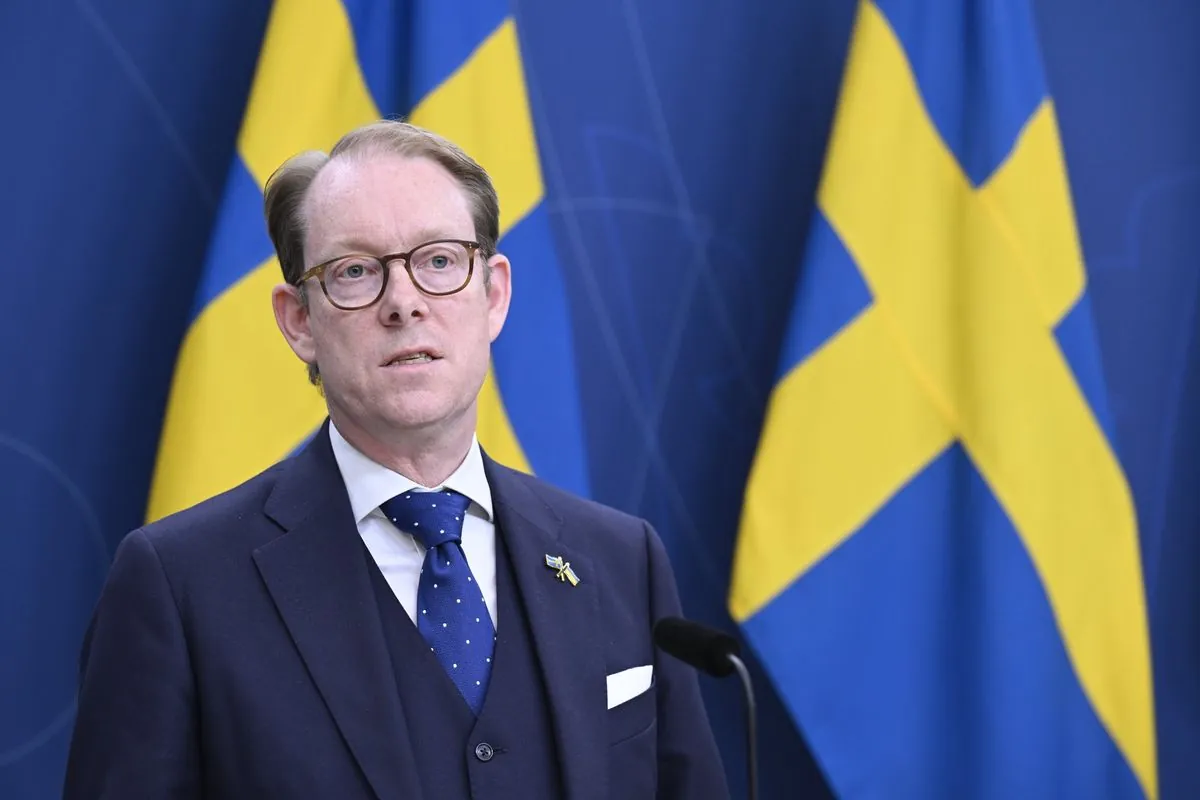Swedish Foreign Minister Billström Resigns After Guiding NATO Entry
Sweden's Foreign Minister Tobias Billström announces his departure from politics after successfully navigating the country's NATO accession. His resignation surprises the political establishment, leaving a vacancy in the government.

In a surprising turn of events, Tobias Billström, Sweden's Foreign Minister, has announced his resignation from the government and complete withdrawal from politics. This decision comes just six months after Sweden's historic accession to NATO, a process in which Billström played a pivotal role.
Billström assumed the position of Foreign Minister in October 2022, joining Prime Minister Ulf Kristersson's coalition government. During his tenure, he faced the challenging task of guiding Sweden through its NATO membership application, a process that concluded in March 2024 when Sweden became the alliance's 32nd member.
The journey to NATO membership was not without obstacles. Turkey and Hungary initially opposed Sweden's bid, with Turkey expressing concerns about Sweden's stance on groups it considers security threats. These objections were eventually overcome, with Turkish legislators voting in favor on January 23, 2024, and Hungary giving its final consent in February 2024.
Billström's decision to leave politics entirely, including his seat in the Riksdag (Swedish parliament), has caught many by surprise. The 349-member assembly is set to reconvene on September 11, 2024, after the summer recess, now facing the prospect of a new Foreign Minister.
Prime Minister Kristersson praised Billström's performance, stating that he had discharged his duties with "flying colors." The government has yet to announce Billström's successor.
Sweden's NATO membership marks a significant shift in the country's foreign policy. For over two centuries, Sweden maintained a policy of military non-alignment, dating back to 1814. The decision to join NATO was largely influenced by Russia's full-scale invasion of Ukraine in 2022, which prompted both Sweden and neighboring Finland to seek the alliance's protection.
The accession process, which typically involves meeting political, economic, and military criteria, took approximately two years for Sweden to complete. During this time, the country has increased its defense spending and reformed its armed forces to align with NATO standards.
Sweden's entry into NATO has significant implications for the Baltic Sea region's security dynamics. As a long-time partner in NATO-led operations since the 1990s, Sweden's full membership is expected to enhance the alliance's capabilities in Northern Europe.
As Billström prepares to leave office, he leaves behind a legacy of successfully navigating one of the most significant shifts in Swedish foreign policy in modern history. His successor will face the task of further integrating Sweden into NATO structures and continuing to support Ukraine in its ongoing conflict with Russia.
"It has not been an easy decision but something that I have thought about and processed for some time."
The political establishment now awaits the announcement of Billström's replacement, as Sweden enters a new era in its international relations and security policy.


































